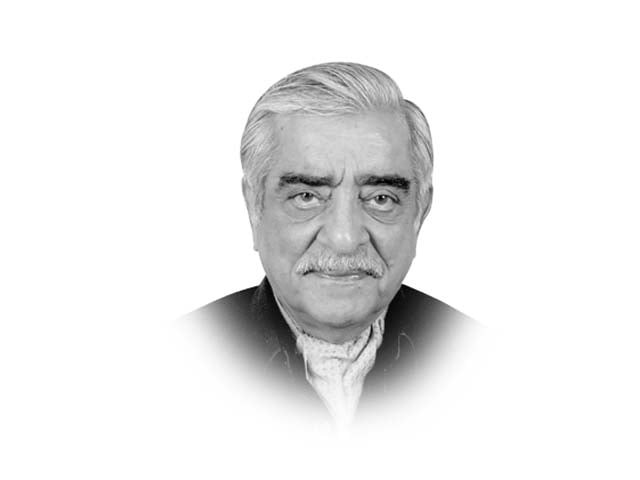Contending with the IS threat in Pakistan
We must ensure that funds from IS does not purchase new adherents for itself or its fraternal extremist organisations

Contending with the IS threat in Pakistan
Jordan was already prosecuting recruiters for the IS and those waving IS banners, but more recently, there has been a dramatic advance in its control of extremist elements. Previously, it had taken steps to prevent the use of the pulpit to criticise the monarchy and the policies the government has followed, while allowing preachers some freedom on other subjects. Now, it has gone further. The Jordanian Minister of Islamic Affairs, Hayel Dawood, undertook a tour of the country to address the imams of the 5,500 mosques out of a total of 7,000 in which Friday khutbas are delivered. He conveyed the message that the imams were “our ground forces against the extremists” and, therefore, not only should they not speak against the monarchy, but should also say nothing that would support calls for jihad or for extremist thought.
Dawood recommended such subjects for sermons as “security and stability, the need for unity in a time of crisis”, and “the beginning of the rainy season — safety measures in preparation for winter”. He went on to suggest that keeping in mind the example set by the Holy Prophet (peace be upon him), whose sermons were about 10 minutes long, they should not deliver sermons longer than 15 minutes. He also let it be known that the number of persons he employed to monitor mosques would be increased from 60 to 200 and perhaps, even to 400.
Dawood, of course, had two tools at his disposal. First, most imams were on the government’s payroll and could be dismissed and denied access to mosques if they disobeyed his instructions. Other imams had been permitted to deliver sermons, but only after they had been vetted by the intelligence service and such clearance could be withdrawn. Second, Jordan’s newly enhanced anti-terrorism law permitted the state security court to press charges against anyone openly supporting the IS.
Most other Arab countries have also in the past exercised a measure of control over what could be preached in mosques, but further measures have been implemented or are being contemplated. Egypt has banned tens of thousands of unlicensed clerics from mosques, while some reports suggest that the Saudi authorities intend introducing security screening for prospective preachers.
In the UAE, where there has been no real threat of extremism, the government policy enunciated by the UAE ambassador in Washington is that the UAE regards “extremism as an existential threat”. Admittedly, this is probably designed to explain why the UAE armed forces have been flying alongside the Americans in Libya and now in Syria to win brownie points in Washington in the quest for support against Iran, but a very real fear of sectarian strife also exists. There, too, the control of mosques and what is preached is very much the order of the day, as it is in most other Gulf States and in North Africa.
But it is not the Arab countries alone that have taken new measures to counter the appeal of the IS. Indonesia has increased its monitoring of those travelling to and from Turkey and other entry points into Syria and Iraq. It has banned display of support for the IS since this violates the country’s ideology of “unity through diversity”. It has also started working with clerics and Muslim organisations to counter pro-IS elements on social media and in mosques. It has been helped by the fact that one of the principal Muslim organisations, the Jemaah Islamiyah, has denounced the IS, accusing it of being “takfiri”, while others have cast doubts on the IS’s credentials and the legitimacy of its claim to being a caliphate.
In Pakistan, everyone acknowledges that we allowed ourselves to become the secondary battlefield for the Iraq-Iran conflict of the 1980s because of the petro-dollars that both sides of the conflict poured into the coffers of our clerics and because General Zia saw this as an essential part of his Islamisation policy. This, perhaps, more than the conflict raging next-door and the unwise use of religious elements to further our regional ambitions, tore our social fabric apart and created horrendous law and order problems. If Pakistan is today termed a ‘dangerous place’ or an ‘ungovernable space’, much of the blame is to be laid at the door of those clerics and leaders, who at the behest of foreign millionaires, abandoned the traditionally tolerant interpretation of faith followed in South Asia, for the bigotry and intolerance that is the hallmark of discourse on religion in modern Pakistan.
Surely, our leaders recognise that we have now reached the stage where our people are more vulnerable to the siren call of an organisation like the IS than any of the Arab or Southeast Asian countries I have mentioned. Even if we cannot take drastic measures that they have taken, we can surely do more than we are now doing to prevent the spread of the IS message. We can ensure that organisations we have banned remain truly banned and do not reappear under different names to collect funds or recruit impressionable youth. We can do more to influence the sermons that are delivered in our mosques. And above all, we can do more to ensure that funds from the IS, which is termed the richest terrorist organisation in the world, does not purchase new adherents for itself or for its fraternal extremist organisations.
Published in The Express Tribune, November 24th, 2014.
Like Opinion & Editorial on Facebook, follow @ETOpEd on Twitter to receive all updates on all our daily pieces.














COMMENTS
Comments are moderated and generally will be posted if they are on-topic and not abusive.
For more information, please see our Comments FAQ